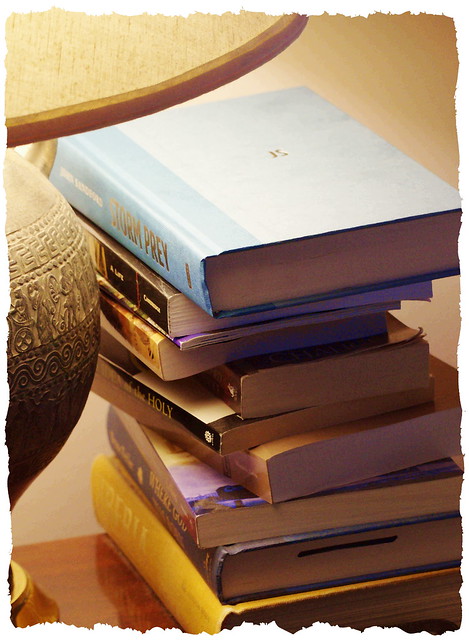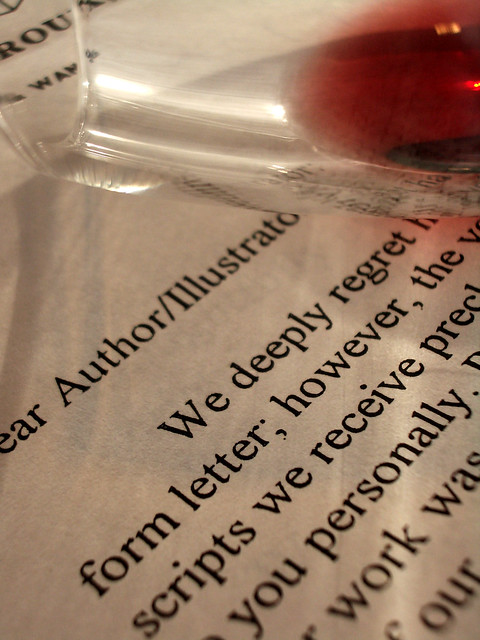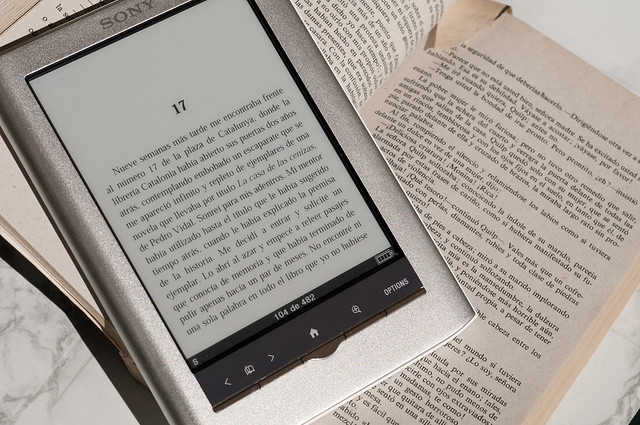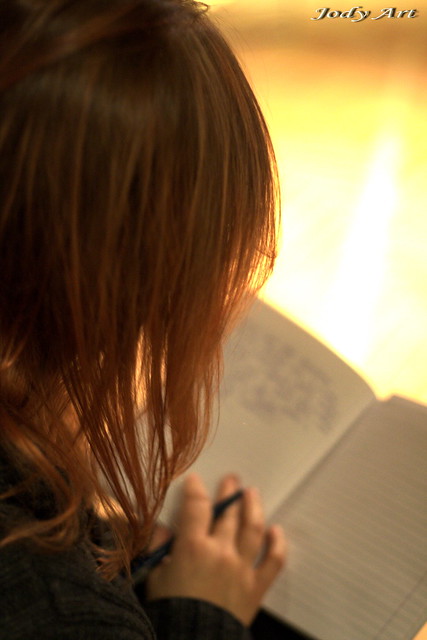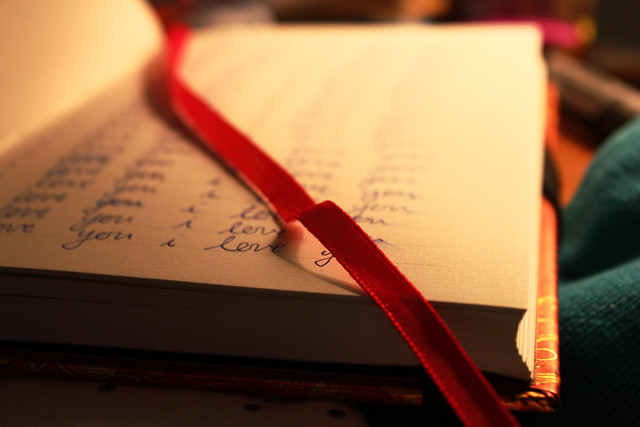 |
| Photo credit: jafPix on Flickr |
So without further ado, here is my summation of the year in terms of writerly/bloggerly/book(erly?) goodness.
Calculated very scientifically with Blogger’s uber-sophisticated page view count, these are my most popular posts of 2012:
As explained last year, Disqus has this very handy little widget that sits on the side of my blog and keeps track of how many comments each commenter makes. While I don’t think it’s 100% foolproof (if you sign into the comments with more than one account, for example, the comment count is distributed amongst the accounts and thus not recorded accurately) these five awesome readers are some of the most active members of the Writability community, and for that they get a little extra recognition. Thank you!
I really amped up the ante with this tumblr thing this year, and I’ve found that now that I understand the site a little better, I really enjoy using it. For those of you who have tumblr accounts, or are considering creating one, I highly recommend checking out these five awesome tumblr blogs:
It was difficult to choose just five books because I’ve read some really incredible books this year, but it came down to these five. I’ve reviewed all of them except for The Sanctuary (as I just finished that one a couple days ago), but they’re all amazing books that you really must read. Immediately.
And finally, a collection of my favorite miscellaneous social media goodies that I wanted to share with you guys.
And that concludes my yearly round-up! There are some very exciting things coming to Writability soon (just around the corner, in fact), so don’t forget to check back in. Happy New Year!
Those are my five top fives—now it’s your turn. What are your favorite blogs (tumblr or otherwise), books and social media goodies of 2012?
Top 5 Most Popular Posts (On Writability)
Calculated very scientifically with Blogger’s uber-sophisticated page view count, these are my most popular posts of 2012:
- Why Write Blog Posts Consistently?
- Writers: Start Acting Like Professionals
- Do You Listen to Music While Writing?
- Ten Indisputable Signs That You’re a Writer
- Why Writers Must Read
Top 5 Most Active Commenters
As explained last year, Disqus has this very handy little widget that sits on the side of my blog and keeps track of how many comments each commenter makes. While I don’t think it’s 100% foolproof (if you sign into the comments with more than one account, for example, the comment count is distributed amongst the accounts and thus not recorded accurately) these five awesome readers are some of the most active members of the Writability community, and for that they get a little extra recognition. Thank you!
Top 5 Favorite Tumblr Blogs of the Year (in no particular order)
I really amped up the ante with this tumblr thing this year, and I’ve found that now that I understand the site a little better, I really enjoy using it. For those of you who have tumblr accounts, or are considering creating one, I highly recommend checking out these five awesome tumblr blogs:
- YA Highway
If you’re a writer and you haven’t yet checked out YA Highway’s non-tumblr blog, I can’t recommend it more. The ladies of YA Highway consistently create amazing posts with writing tips, interviews, Field Trip Fridays and Road Trips that I always look forward to in my reader, and their tumblr is just as fantastic, if not more so because I love the extra writing links, humorous posts, writing and reading related pictures and tidbits that they reblog. - Quote Book
What can I say? I have this thing for quotes and Quote Book has proven to be a fantastic resource for interesting, thoughtful, funny and beautiful quotes. If you like quotes even half as much as I do, definitely check them out.
- Title To Come
If you’re a writer and you don’t have a tumblr account, I would recommend making one just to follow Title To Come. Words cannot accurately describe the hysterical awesomeness that comes out of Title to Come’s tumblr blog, so I’ll just direct you to this, and this, and this (and this, and this too). - The Right Writing
Writing prompts, great tips, and fantastic bite-sized writing-related posts makes The Right Writing a must-follow for writers who frequent tumblr. - Writer’s Relief, Inc.
Writer’s Relief posts a really nice mix of amusing (writing related) photos and charts, helpful tips and articles related to writing or the publishing world, and wonderful pictures of books and what-not. If you’re looking for a nice mix of writing tumblrness, I definitely recommend them.
Top 5 Favorite Books That I Read This Year (in no particular order)
It was difficult to choose just five books because I’ve read some really incredible books this year, but it came down to these five. I’ve reviewed all of them except for The Sanctuary (as I just finished that one a couple days ago), but they’re all amazing books that you really must read. Immediately.
- The Fault in Our Stars by John Green (My review here).
- A Million Suns by Beth Revis (My review here).
- The False Prince by Jennifer Nielsen (My review here).
- The Girl of Fire and Thorns by Rae Carson (My review here).
- The Sanctuary by Ted Dekker
As I mentioned above, I didn’t review The Sanctuary yet, so I’ll rave a little about how fantastic it is here until a proper review is posted. The Sanctuary is a sequel to The Priest’s Graveyard (my review here) and it was a book that I simply could not put down. Dark and definitely captivating, I caught myself thinking about the book between readings and wondering what was going to happen next. If you like thriller-paced novels, I absolutely recommend The Sanctuary.
Top 5 Favorite Favorites (in no particular order)
And finally, a collection of my favorite miscellaneous social media goodies that I wanted to share with you guys.
- @Janice_Hardy & @elizabethscraig
For all of you writers who are on Twitter, I highly recommend following these two ladies. They both consistently post links to some fantastic posts and articles on writing, publishing, etc. and they’re an invaluable resource to writers. Highly recommended. - Vlogbrothers
I don’t watch very many vlogs, but I make a point not to miss the vlog of John and Hank Green (yes, the same John Green as the author mentioned above and his equally insightful brother). Their videos are often funny and nearly always thought-provoking. Sometimes they’re related to writing and sometimes not, but I’ve always found them to be interesting and relevant nonetheless. - Between Fact & Fiction
Between Fact & Fiction is author Natalie Whipple’s blog. While she doesn’t post as often as some, I’ve found her posts to be particularly insightful and thoughtful. If you’re looking for a blog with some writing-life related advice, or a peek into the soon-to-be-published life of a traditionally published author, I definitely recommend her site. - Sam Spratt
So this isn’t writing-related at all, but I also really like art and Sam Spratt’s illustrations are my absolute favorite. If you’re a fan of art, portraiture or illustration of any kind, I recommend checking out some of his work. - The Bookshelf Muse
The brainchild of the ever fantastic Angela Ackerman and Becca Puglisi (authors of The Emotion Thesaurus, which I can’t recommend enough for writers), The Bookshelf Muse is a great resource for all of you writers out there. If you haven’t already taken a look at their wonderful blog, take some time to do so. You won’t regret it.
And that concludes my yearly round-up! There are some very exciting things coming to Writability soon (just around the corner, in fact), so don’t forget to check back in. Happy New Year!
Those are my five top fives—now it’s your turn. What are your favorite blogs (tumblr or otherwise), books and social media goodies of 2012?









